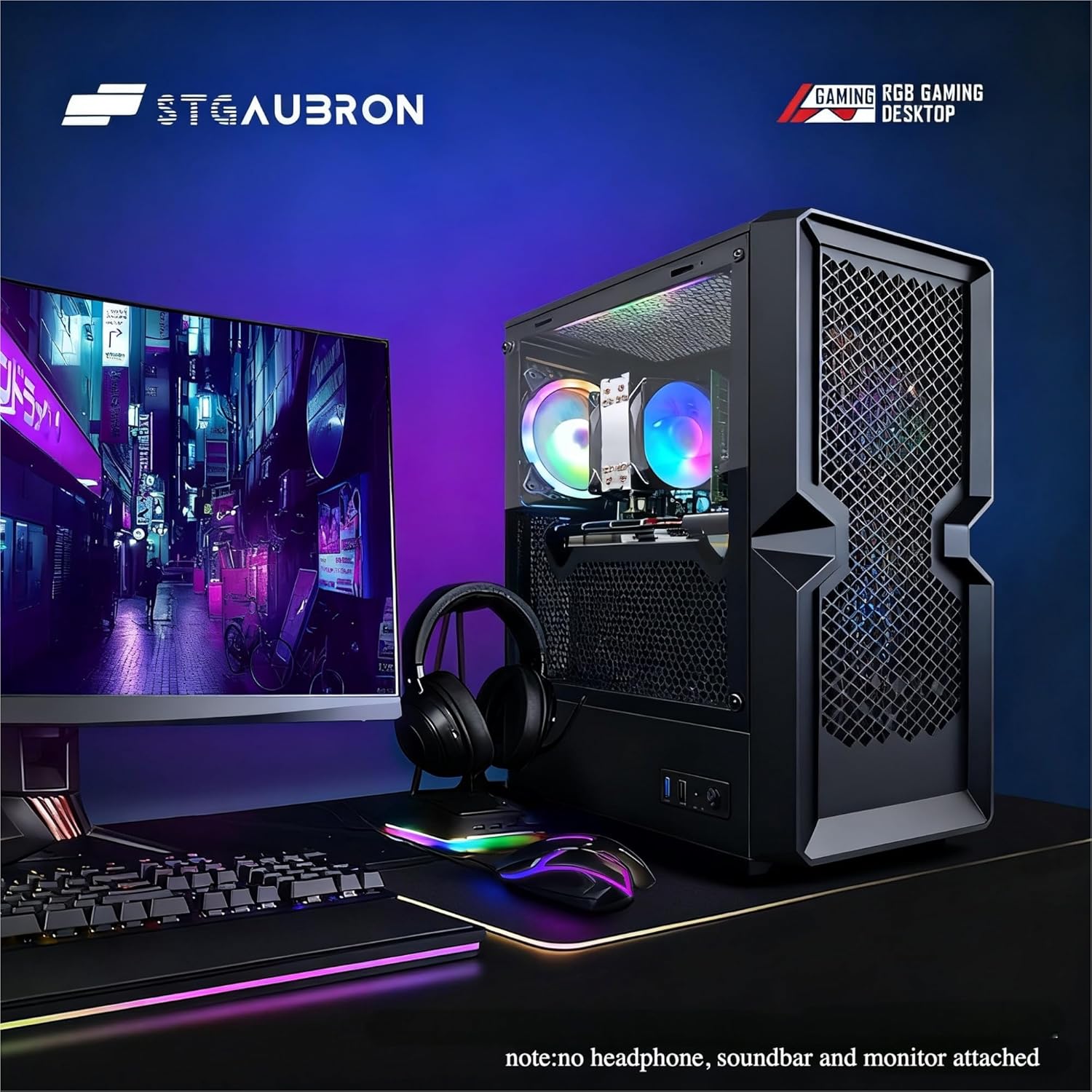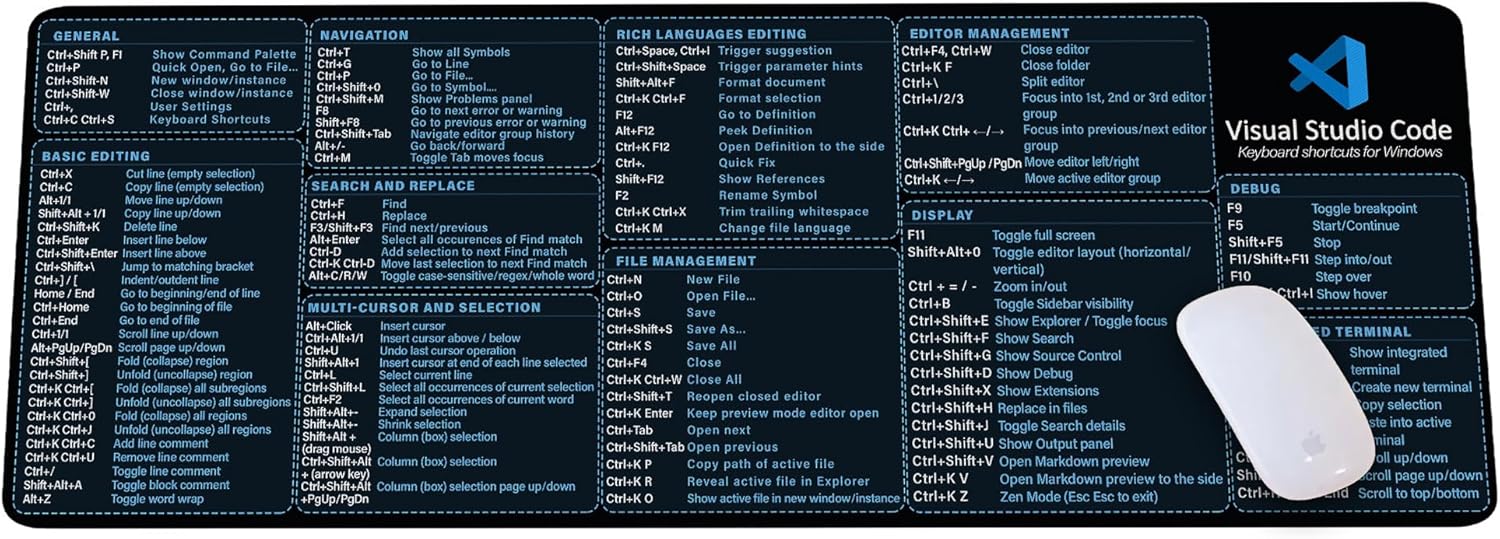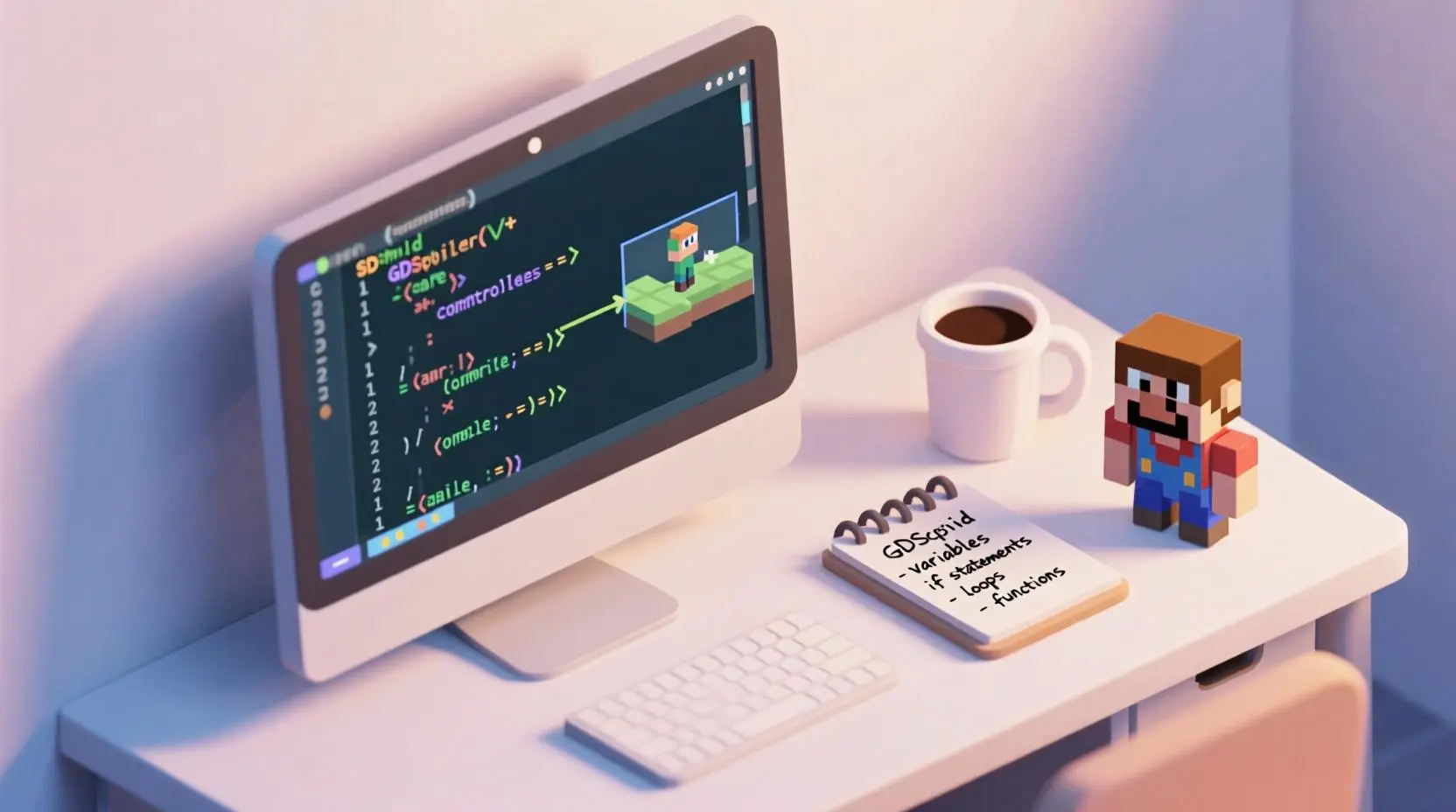If you’re diving into game development with Godot Engine, learning GDScript is essential. GDScript is a high level, dynamically typed programming language designed specifically for Godot. It’s simple, flexible, and similar to Python, making it perfect for beginners and experienced developers alike. This guide will introduce you to the basics of GDScript and help you get started with creating your first scripts for games.
What is GDScript?
GDScript is Godot Engine’s built in scripting language. Unlike general purpose programming languages like C++ or Java, GDScript is optimized for game development within Godot. It is lightweight, intuitive, and allows developers to quickly control game objects, handle input, manage physics, and more. Its syntax is clean and readable, which helps beginners understand programming concepts faster.
Key Features of GDScript:
- Python-like syntax: Easy to read and write, especially for beginners.
- Integrated with Godot: Tight integration with Godot nodes and scenes.
- Dynamic typing: You can define variables without explicit type declaration.
- Performance: Optimized for game logic and scripting.
Setting Up GDScript in Godot
Before writing your first GDScript, you need to install Godot Engine. After installation, creating a script is straightforward:
- Open Godot and create a new project.
- Add a Node or any other scene object.
- Click Attach Script.
- Name your script and select GDScript as the language.
- Click Create, and Godot will generate a script file attached to your node.
Your first GDScript file usually looks like this:
extends Node
func _ready():
print("Hello, Godot!")
Here, _ready() is a built-in function that runs when the node is added to the scene. The print() function outputs text to the console.
GDScript Syntax Basics
Understanding the syntax is crucial to writing effective scripts. Here are some fundamental concepts:
Variables and Constants
Variables store data, and constants store fixed values.
var player_name = "Hero"
var player_health = 100
const MAX_HEALTH = 100
varis used to declare variables.constis used for values that should not change.
Data Types
GDScript supports several data types:
- Numbers:
int,float - Strings:
"Hello, world" - Booleans:
true,false - Arrays:
[1, 2, 3] - Dictionaries:
{"key": "value"}
Example:
var score = 0
var is_alive = true
var inventory = ["Sword", "Shield", "Potion"]
var player_info = {"name": "Hero", "level": 1}
Functions
Functions are blocks of reusable code. They help organize your scripts.
func greet_player(name):
print("Welcome, " + name + "!")
greet_player("Hero")
funcdefines a function.- Parameters allow you to pass values into functions.
Control Flow
GDScript supports standard control flow:
If-Else Statements
if player_health <= 0:
print("Game Over")
else:
print("Player is alive")
Loops
for i in range(5):
print(i)
while player_health > 0:
player_health -= 10
Signals
Signals in Godot are like events. They allow nodes to communicate without tight coupling.
# Connect a signal
button.connect("pressed", self, "_on_button_pressed")
func _on_button_pressed():
print("Button was pressed!")
Working with Nodes
Godot is node-based, so GDScript often manipulates nodes:
extends Sprite
func _ready():
# Move the sprite
position.x += 100
extends Spritemakes this script a child of the Sprite node.- You can access properties like
position,rotation, and more.
Accessing Other Nodes
You can get other nodes using get_node():
var enemy = get_node("Enemy")
enemy.health -= 20
This makes it easy to manage interactions between objects.
GDScript Best Practices
- Use descriptive variable names: Improves readability.
- Comment your code: Helps you and your team understand scripts.
- Keep scripts small and focused: One script per node is ideal.
- Use signals wisely: Reduces dependencies between nodes.
- Test frequently: Godot’s live scene updates make debugging easy.
Example: Simple Player Movement
Here’s a basic example to move a player sprite with keyboard input:
extends KinematicBody2D
var speed = 200
func _physics_process(delta):
var velocity = Vector2()
if Input.is_action_pressed("ui_right"):
velocity.x += 1
if Input.is_action_pressed("ui_left"):
velocity.x -= 1
if Input.is_action_pressed("ui_down"):
velocity.y += 1
if Input.is_action_pressed("ui_up"):
velocity.y -= 1
velocity = velocity.normalized() * speed
move_and_slide(velocity)
_physics_process(delta)runs every physics frame.Input.is_action_pressed()checks key presses.move_and_slide()moves the player while handling collisions.
Learning Resources for GDScript
To master GDScript, utilize:
- Official Godot Documentation: Detailed guides and API references.
- Godot Tutorials on YouTube: Step by step video tutorials.
- Community Forums: Ask questions and share knowledge.
- Example Projects: Open source Godot projects for practice.
Why GDScript is Ideal for Beginners
GDScript’s simplicity and integration with Godot make it ideal for beginners:
- Easy to learn compared to C# or C++.
- High readability and Python like syntax.
- Strong community support.
- Designed specifically for game development.
Conclusion
GDScript is the heart of scripting in Godot Engine. Its simple syntax, tight integration with Godot, and beginner friendly nature make it perfect for anyone starting game development. By learning the basics variables, functions, control flow, signals, and node interactions you can start building interactive games and bring your creative ideas to life. The key is consistent practice, experimenting with scripts, and gradually exploring advanced concepts like coroutines, custom signals, and scene inheritance.
Start small, practice often, and soon you’ll be scripting complex gameplay mechanics with ease. Godot and GDScript provide a solid foundation to enter the exciting world of game development.

STGAubron Gaming PC Desktop
STGAubron Gaming PC Desktop Computer, Intel Core i5 up to 3.6G, Radeon RX 590 8G, 16GB RAM, 1TB SSD, 600M WiFi, BT 5.0, RGB Fan x3, Windows 11 Home

RAWM ES21 Wireless Gaming Mouse
Razer DeathAdder V4 Pro Wireless Gaming Mouse: 56g Lightweight - HyperSpeed Wireless Gen-2 - Optical Scroll Wheel - Optical Switches Gen-4 - Focus Pro 45K Sensor Gen-2 - Up to 150 Hr Battery

Visual Studio Code Shortcuts Mouse Pad
Visual Studio Code Shortcuts Mouse Pad – Desk Mat for Programmers, Coders & Beginners, Great Office Gift for Developers & Tech Enthusiasts, Computer Accessory for Study, Work, and Learning KMH

Brain Song 2025 Gamma
Cognitive Enhancement or Just Hype? Reviews The Brain Song (Killer NEW Memory Offer)


Completely I share your opinion. It is excellent idea. I support you.
——
https://hosting.estate/tags/%D1%81%D0%B0%D0%B9%D1%82%20%D0%B4%D0%BB%D1%8F%20%D1%81%D0%B5%D0%BB%D1%8C%D1%81%D0%BA%D0%BE%D0%B3%D0%BE%20%D1%85%D0%BE%D0%B7%D1%8F%D0%B9%D1%81%D1%82%D0%B2%D0%B0/
You are not right. I suggest it to discuss. Write to me in PM.
——
https://www.babyclub.de/mybabyclub/forum/themen/19233088.erfahrungsaustausch-nach-der-buchung.html
I apologise, but, in my opinion, you commit an error. Let’s discuss it. Write to me in PM, we will communicate.
——
https://xsg.ru/tags/%D1%81%D0%BE%D0%B2%D0%BC%D0%B5%D1%81%D1%82%D0%BD%D1%8B%D0%B5%20%D0%BF%D1%80%D0%BE%D0%B5%D0%BA%D1%82%D1%8B/
Thanks for another magnificent post. Where else could anybody get that kind of information in such an ideal method of writing? I’ve a presentation next week, and I am at the look for such information.
Anything!
——
https://xtd.ru/commands/100-z-y-a-dy-linux.html
You commit an error. Let’s discuss. Write to me in PM.
——
https://the.hosting/kk/help/kak-podkljuchitsja-k-serveru-po-rdp-v-ios
Would love to always get updated outstanding web blog! .
glad to be one of many visitants on this awesome website : D.
I consider something really special in this internet site.
I’ve been surfing on-line more than three hours today, but I by no means discovered any interesting article like yours. It is pretty worth sufficient for me. In my opinion, if all site owners and bloggers made good content as you probably did, the net will likely be much more helpful than ever before.
Yet another thing I would like to talk about is that as opposed to trying to suit all your online degree classes on days and nights that you finish off work (since most people are drained when they return home), try to have most of your lessons on the saturdays and sundays and only a couple courses for weekdays, even if it means a little time away from your saturdays. This is really good because on the saturdays and sundays, you will be more rested along with concentrated with school work. Thanks alot : ) for the different suggestions I have acquired from your blog site.
https://www.intensedebate.com/people/findycarcom
Loving the information on this internet site, you have done great job on the articles.
What i don’t realize is in truth how you’re now not actually a lot more well-preferred than you might be now. You are so intelligent. You understand thus considerably in the case of this subject, produced me in my view imagine it from so many varied angles. Its like men and women aren’t fascinated except it is something to accomplish with Lady gaga! Your personal stuffs excellent. All the time maintain it up!
купить казахстанский номер
I agree with your details , superb post.
I’m writing to make you be aware of of the fine discovery our daughter encountered going through the blog. She noticed several things, most notably what it is like to possess a wonderful teaching nature to get the rest completely grasp various advanced things. You undoubtedly did more than our own expected results. I appreciate you for giving such essential, dependable, explanatory as well as fun thoughts on that topic to Sandra.
noleggio yacht con equipaggio
Thanks for the sensible critique. Me & my neighbor were just preparing to do some research about this. We got a grab a book from our local library but I think I learned more clear from this post. I’m very glad to see such wonderful info being shared freely out there.
Great tremendous issues here. I am very glad to look your post. Thank you so much and i am having a look ahead to contact you. Will you kindly drop me a e-mail?
Have you ever thought about including a little bit more than just your articles? I mean, what you say is fundamental and all. Nevertheless think of if you added some great photos or videos to give your posts more, “pop”! Your content is excellent but with pics and videos, this blog could definitely be one of the very best in its niche. Awesome blog!
Some truly good content on this internet site, regards for contribution. “Gratitude is merely the secret hope of further favors.” by La Rochefoucauld.
What i don’t understood is actually how you’re not actually much more well-liked than you may be now. You are very intelligent. You realize thus significantly relating to this subject, produced me personally consider it from so many varied angles. Its like men and women aren’t fascinated unless it is one thing to do with Lady gaga! Your own stuffs excellent. Always maintain it up!
Hello! I’ve been following your web site for a long time now and finally got the courage to go ahead and give you a shout out from Porter Tx! Just wanted to tell you keep up the excellent job!
I got what you mean , thankyou for putting up.Woh I am happy to find this website through google. “I would rather be a coward than brave because people hurt you when you are brave.” by E. M. Forster.
I’m truly enjoying the design and layout of your site. It’s a very easy on the eyes which makes it much more enjoyable for me to come here and visit more often. Did you hire out a developer to create your theme? Exceptional work!
Sugaring effektive und moderne Haarentfernung in Berlin Die Epilation mit Zuckerpaste wird von unseren speziell dafür ausgebildeten Kosmetikerinnen / Depiladoras an allen Körperregionen durchgeführt. Wir bieten diese effektive und moderne Behandlung sehr erfolgreich und schonend mit einem Maximum in der Hygiene der Anwendung an. Sugaring wird immer beliebter.